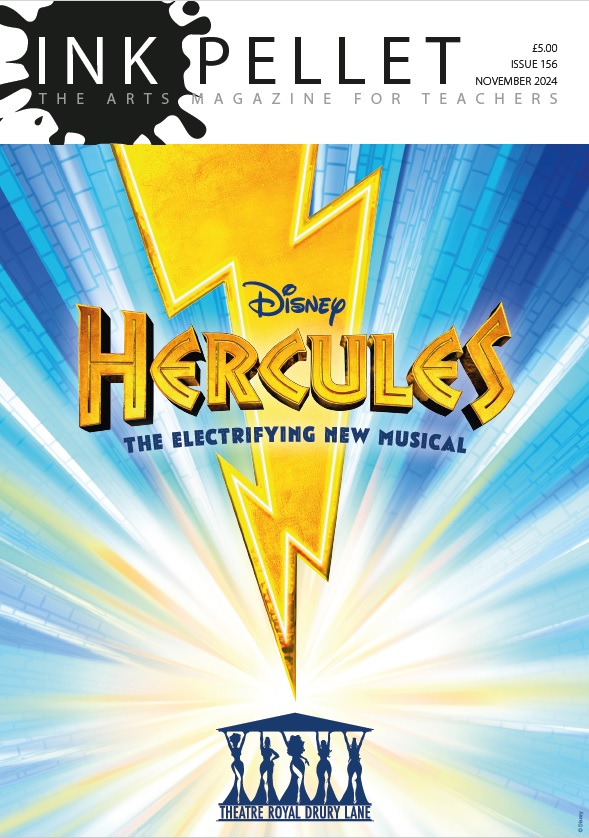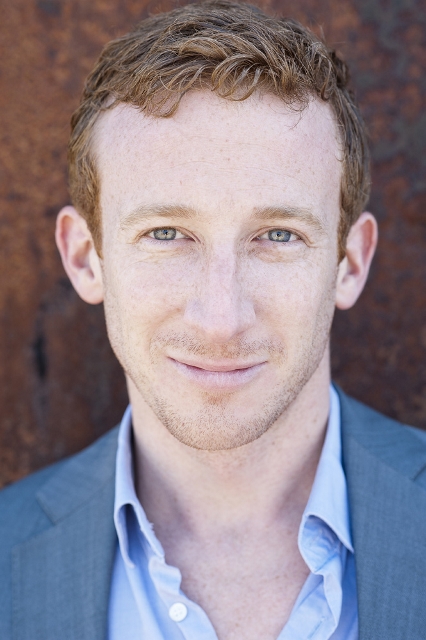An interview with writer and actor Ben Crystal should be heard, which is a notion that replicates his view on how schools should approach the teaching of Shakespeare. He speaks with wonderful cadence, almost as if the practice of speaking in iambic pentameter to which he has become accustomed in his work has infiltrated his whole being and of course, our conversation is peppered with references to Shakespeare’s words that he can recite with an actor’s ease..
He has become known as something of a Shakespeare scholar but in the new mould. His celebrated work Shakespeare On Toast has been praised for breaking down the barriers of the playwright.
However the fact that Crystal is an actor too is often underplayed but this is his secret weapon – he will unravel the complexities of the plays from a player’s point of view, born from working and working at understanding text and interpreting this understanding as an actor. He explains: ‘Shakespeare in some respects is easier to learn than a lot of other texts because of this regular iambic rhythm. it can help you learn further lines. ‘The scariest thing about acting Shakespeare is that you’ve got to make the words sound real, as if they’re being said for the fi rst time. In order to be able to do that you’ve got to let the words sink into your heart. You can’t sound as if you’re reciting poetry you’ve got to sound like you’re really thinking this thing for the first time. For example, with the line ‘Oh that this too, too sullied flesh would melt …’ an actor has to actually think ‘I wish my flesh would melt off’. That’s why I love Shakespeare so much: he was so good at getting under the skin of the human condition that if it’s acted well you sit in the audience and think ‘I know what that feels like’.
‘The actor has to be brave enough to let down all the psychological obstacles and say this is what it really feels like.’
Crystal brings this knowledge to his new series of books, Springboard Shakespeare, pocket guides for anyone aged eight upwards, where a whole section in each is devoted to exploring the text as an actor might.
He says: ‘I’ve taken some of the big speeches and dialogues and annotated them like an actor might do in rehearsal. You speak with a particular lilt in your voice [his voice becomes rhythmic] to indicate that you are continuing your thought until you finish your thought [tone drops].’ (This is the part, in particular, of the interview that needs to be heard.)
Crystal continues: ‘I wanted the books to be a combination of Shakespeare on Toast, with its quick and easy warm narrative style, the kind of info you might get in a theatre programme, and the anti-thesis of York/Brodies notes with their dense prose. So there is stuff to read on your way to the theatre, things to think about while you’re there and things to think about on your way home. There are five ‘Interval whispers’ to look out for if you haven’t time to do anything else and suggestions for afterwards that if you didn’t like this production go and see another one.
‘There’s a great tendency in Shakespeare writing to give a right answer but if there’s one thing I’ve tried to do in the new series is to ask some questions, maybe offer up some answers but I very rarely say: ‘It’s this’.
‘I might voice a strong opinion but I’m wary of any idea that we should respond in a certain way.
‘The persona mask shows that comedy and tragedy sit cheek by jowl and Shakespeare knew that at great moments of comedy there is tragedy. At moments of great poignancy people become nervous and are not sure how to respond; so they laugh.’
The drive to share the beauty of Shakespeare with the world comes from an education of hating it, partly because of how it was taught.
It was only when he started to perform the plays himself that it clicked.
Crystal recalls: ‘I had a cocked view of literature because I suspected it wasn’t being introduced to me properly.
‘In my English Literature classes, we had to stand up and read out passages; waiting for it to be over.
‘Never was it explained; nobody ever explained properly what iambic pentameter is – that it has the same rhythm as your heart. Shakespeare realised it and used to replicate that pattern and rhythm.
‘It’s a working beast and we’re just standing there reciting [he does so in the voice of dullard] but these are real people he’s writing about. It’s not until you jump up on your feet that you can really appreciate what a play is about.
‘I was cast as Ariel in The Tempest when I was seventeen and it was the first time I’d acted Shakespeare. I was running around this stone amphitheatre in the September rain wearing two pieces of silk and a piece of string and for the first time Shakespeare made sense to me.
That’s when I decided to be an actor.’
His father advised him to do an ‘easy’ degree so he eschewed the idea of law and plumped for English Language (partly because he had grown up immersed in the concepts).
The childhood was bookish, supportive; and the young Ben was lucky to have fairly liberal parents.
He was born in Ascot and after a short spell in Wokingham, the family decamped to north Wales.
School, as a result, was not the greatest experience.
Crystal says: ‘I was quite clever when I was a boy but I was English, had a professor for a father, wore glasses and had red hair; and sad though it is all those things combined you get picked on for being different. So I learned that being clever was less a good survival instinct than being funny.
‘It sort of rounded me out so by the time I got to study I remember piping up saying Thomas Hardy was a bit like EastEnders and I was almost kicked out of class!
‘But for A level I had a wonderful teacher who made me feel better about it. The frustration has driven me to do what I’m doing now – to provide help that isn’t there. Home life was great though.
‘Books lined every wall but my parents are wonderful and liberal and had I wanted to go straight to drama school they would have supported it.
‘Tea time at home was always full of puns, and my dad saw me as a source of ‘Interesting data’, his own personal Google! I had to apologise for being clever at school but never had to at home.’
So he took his father’s advice, went to Lancaster where he spent most of his time learning his craft, acting and directing.
A year at Drama Studio London followed and then Crystal started working with theatre companies that focussed on the physical, like Complicite and Frantic Assembly. It was through this work that the seeds of his work today were sown – to marry the physical with the vocal.
He then started writing with his father, of which he says: ‘Working with my dad is wonderful, hard at times; dad being a 50 something linguist and relatively well known in his field wasn’t used to collaborating and I’d never written before so it was a wonderful experience and challenge for us both.
‘My father became my friend and colleague.’
Now that his new series is about to be published, Crystal will be concentrating on his own practice – to create a model for performing Shakespeare for the next 25 years in the same way that Kenneth Branagh rewrote the performance rules in the 1980s.
Crystal created Passion in Practice, a workshop-based company that explores Shakespeare through the first folio scripts. He explains: ‘This is as close to the original plays as we can get. My ambition is to form a Shakespeare company along the lines of his company – not all male – if he was around now he would have women in it. They worked together for 15-20 years – a true ensemble – they knew each other so well, they knew his writing so well. I want to build a group of people like this.’
Alongside this, is the wish to share his love for Shakespeare, to try through his books, to influence the way it is taught in schools.
He says: ‘I wished a drama teacher had introduced me to Shakespeare saying ‘these are plays to be performed, this is how you perform them, most of his audience couldn’t read, us reading them is weird rather than seeing them.
‘We’ve got it back to front. If the curriculum forced pupils to be introduced to Shakespeare dramatically first, they could then choose to study them at a literary critical level – how wonderful for English Literature teachers to have their Shakespeare students prepped in that way as young as possible. I would introduce pupils to Shakespeare up on their feet, acting it, speaking it.
‘I did a workshop in Peterborough and they had not done Shakespeare before. We were doing Romeo and Juliet and I said, ‘This is your play; for whatever reason Shakespeare decided to write a love story for your age group and you can do it your way.
‘They improvised the balcony scene with a lesbian disco club scene with Romella and Julio. It doesn’t matter that they don’t understand the different types of poetry but once they own it then they have grounds to say it’s now part of our literary cannon and we here are some tools we can use to dissect it.’
Springboard Shakespeare is published by Bloomsbury on June 20 priced £6.99.
For further details of Ben’s work with Passion in Practice, visit the website at www.passioninpractice.com
Shakespeare: King Lear – the one I hated at Alevel. I learned to understand how beautiful it is in terms of structure and poetry, by acting it.
Novel: Jane Eyre by Charlotte Bronte and William Gibson’s Neuromancer, my first introduction to science fiction. I would love to direct a production of Jane Eyre because no-one’s done it properly yet. All the productions seem to miss out important bits.
Music: I’m listening to Max Richter’s Four Seasons Recomposed and in my workshops. I use a lot of Steve Reich’s modern classics – same rifts repeated but slightly varied. It seems to chime with the type of work I do.
Television: House, Benedict Cumberbatch’s Sherlock and Dr Who – that’s another ambition to be the first ginger Dr Who! (My favourite doctor is Peter Davison!)



